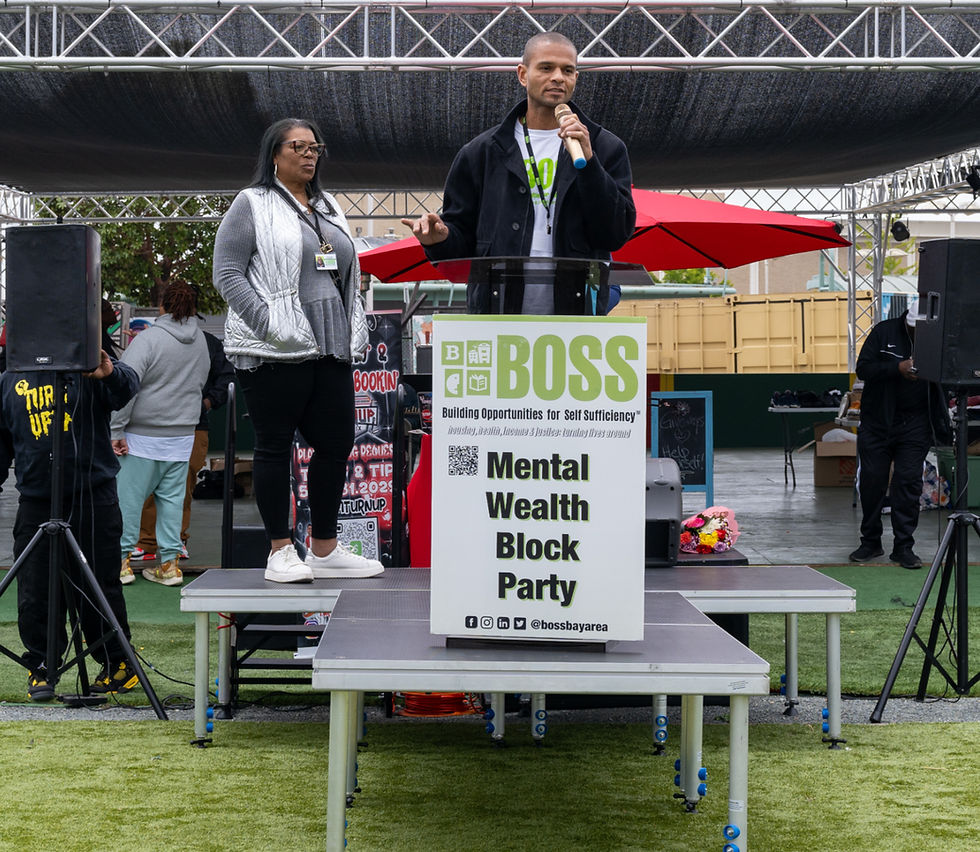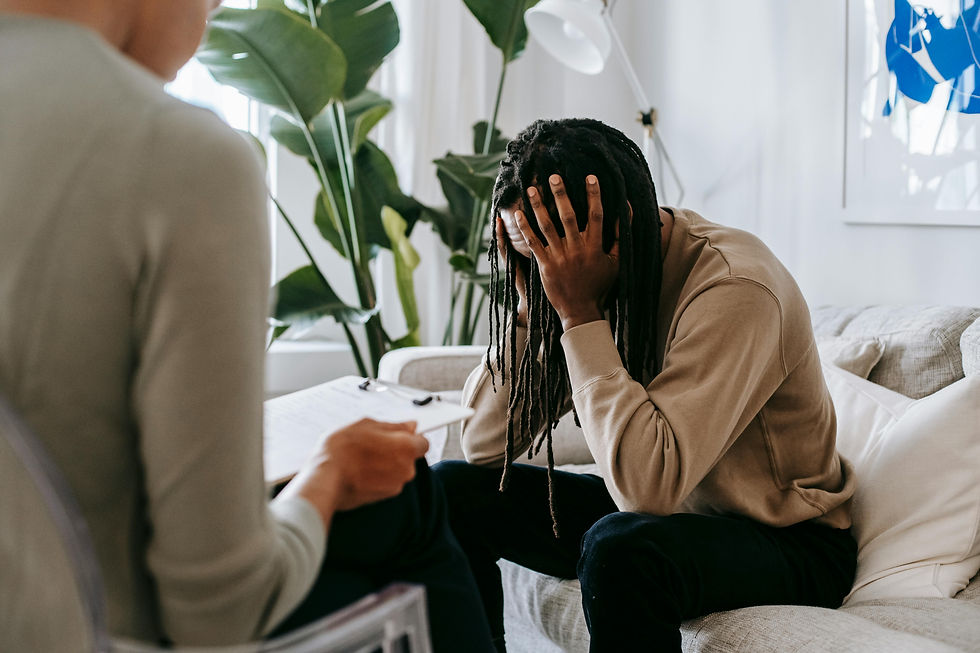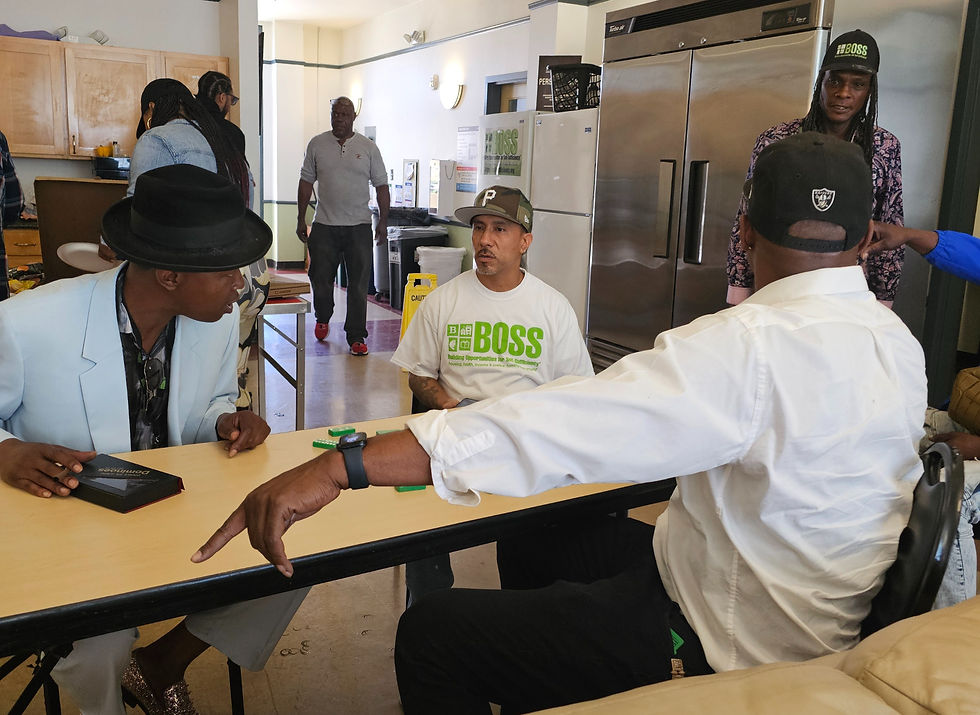Men's Health Awareness Month: Focusing on Black Men's Mental Health
- bossbayarea

- Jun 17, 2024
- 3 min read
As we observe Men's Health Awareness Month this June, it's essential to focus on an often overlooked but critically important issue: Black men's mental health. In communities like Oakland, Black men face unique challenges that can contribute to higher rates of mental health issues. By raising awareness, providing support, and fostering open discussions, we can work towards breaking down the barriers that prevent Black men from seeking help and accessing the resources they need to thrive.
Understanding the State of Black Men's Mental Health

According to a report by the Alameda County Public Health Department, Black men are disproportionately affected by mental health issues compared to other demographic groups. They experience higher rates of depression and anxiety but are less likely to seek professional help due to stigma, lack of access to culturally competent care, and systemic barriers. Additionally, rates of suicide among Black men have been on the rise, highlighting the urgent need for targeted interventions and support systems.
These statistics underscore the critical need for increased awareness and resources tailored to the unique experiences of Black men. Mental health is just as important as physical health, yet the stigma surrounding mental health issues can discourage individuals from seeking the help they need. By addressing these challenges head-on, we can begin to create an environment where Black men feel supported and empowered to prioritize their mental well-being.
Challenges Faced by Black Men in Seeking Mental Health Support

One of the most significant barriers Black men face in seeking help is stigma. Within many Black communities, mental health issues can be seen as a sign of weakness or a personal failing, leading to fear of judgment or discrimination. This can prevent individuals from opening up about their struggles and seeking help.
Another major challenge is the lack of cultural competence in mental health services. Many mental health providers may not fully understand or address the unique cultural backgrounds and experiences of Black men, leading to a lack of trust and engagement in the treatment process. Mental health services must be culturally sensitive and competent to support Black men effectively.
Systemic barriers also play a significant role in limiting access to mental health resources. Socioeconomic factors, healthcare disparities, and systemic racism can exacerbate mental health issues and restrict access to necessary care. Addressing these issues is essential to improving mental health outcomes for Black men, to ensure they receive needed support.
BOSS's Impact on Black Men's Mental Health

Organizations like BOSS Bay Area are making significant strides in addressing the mental health needs of Black men. Through various programs and partnerships, BOSS actively supports Black men by creating safe and inclusive spaces for healing and empowerment. One of BOSS's flagship initiatives is the Trauma Recovery Center (TRC), which provides survivor-centered services specifically designed to address the unique needs and experiences of Black men and the community. By offering personalized care and empowerment-focused approaches, the TRC fosters resilience and promotes healing.
In addition to the TRC, BOSS collaborates with mental health organizations and professionals specializing in serving Black communities. These partnerships strengthen the network of support and expertise, ensuring that Black men have access to comprehensive and culturally relevant care. Healing circles, such as those facilitated in "The Locker Room" in collaboration with Adamika Village, provide welcoming spaces for Black men to offer and receive support, fostering unity, camaraderie, and spiritual renewal. Events like "Amongst Men," in partnership with the Mixed Behavior Foundation, provide safe spaces for peer counseling sessions and workshops where Black men can openly share their experiences and connect with mental health professionals and community leaders.
What Can We Do to Help?
Increasing awareness through education and awareness campaigns can help combat stigma and encourage open conversations about mental health within the Black community. Healthcare providers and mental health professionals should receive training in cultural competence to serve Black men's needs better. Establishing community-based support networks, peer support groups, and mentorship programs can provide invaluable resources for Black men seeking help. Advocating for policies to address systemic inequalities in health/mental health services will further improve access and outcomes for Black men.
Together, we can make a difference by encouraging open discussions, providing culturally competent care, and advocating for systemic change. Join us in this vital effort to ensure that Black men receive the mental health care and support they deserve.

Support Resources for Black Men's Mental Health
The Black Emotional and Mental Health Collective (BEAM): beam.community
Therapy For Black Men: therapyforblackmen.org
National Alliance on Mental Illness (NAMI) East Bay: namieastbay.org
Black Men Heal: blackmenheal.org









Comments